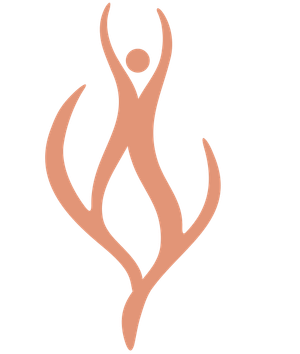Integrative medicine represents a shift in how we think about patient care by bridging the gap between conventional medical practices and holistic health.
As functional health doctors, we understand that health is more than the absence of disease. It's the complete harmony of body, mind, and spirit.
With a rise in studies showcasing the significant role the mind plays in healing, our perspective is critical in this transformation. We approach each individual as a holistic system, incorporating a range of treatments from conventional therapies to various complementary practices.

Our role in healthcare extends beyond diagnosing and treating specific ailments. We aim to understand and connect with the whole person. This means considering the physical symptoms and the psychological, social, and spiritual aspects of health. Our philosophy is centered on the belief that personal empowerment and proper balance are critical components of wellness.
We are committed to guiding our patients toward a sustained state of well-being by addressing lifestyle, environmental factors, and genetic predispositions.

Embracing integrative health practices allows us to provide more personalized care tailored to individual needs. This alignment of traditional medicine and holistic approaches reshapes hospitals and clinics, reflecting a broader definition of health that many find more in sync with qualitatively rich, well-lived lives.
Through our concerted efforts, we facilitate not just recovery from illness but also a proactive journey towards a healthier, more vibrant life.
Principles of Integrative Medicine

In our practice of integrative medicine, we combine the best practices of conventional medicine with validated strategies from alternative medicine to promote optimal health and wellness.
Underlying Philosophy
We recognize that health is more than the absence of disease. Our philosophy is grounded in supporting the body's innate ability to heal and the integration of the patient's emotional, psychological, and physical dimensions to foster wellness.
Conventional medicine often focuses on symptomatic relief, while integrative medicine extends its reach to understand and treat the root causes of an individual's condition.
Patient-Centered Care
Our approach to patient-centered care is collaborative. We see patients as equal partners in their health journey, and our care plans emphasize active patient engagement. We tailor treatments to meet individual needs, encompassing a balance of conventional and alternative medicine to support the overall well-being of our patients.
Approaches in Holistic Medicine
When we consider integrative holistic medicine, we focus on treating the whole person. Our approach combines traditional medical treatments with alternative therapies to promote optimal health.
Physical and Biological Treatments
Acupuncture and Massage: We use acupuncture to stimulate specific points on the body, which can improve energy flow and alleviate pain. Massage therapy is another key component, offering a range of health benefits from reducing stress to improving circulation and muscle function.
- Biological Treatments: We might recommend dietary supplements or herbal medicines. It's crucial to note that these treatments are used to support traditional therapies and are tailored to individual patient needs.

Mind and Spirituality Practices
Meditation and Yoga: Integrating these practices into daily routines helps manage stress and promotes a sense of well-being. We encourage meditation as it can foster a deep state of relaxation and a tranquil mind, which is essential for healing and long-term health.
- Spiritual Considerations: For some, spiritual beliefs and practices play a vital role in healing. We respect and incorporate these individual spiritual elements into the treatment plan.

Environment and Social Aspects
Social Support: We recognize that a strong social network can be critical to recovery from illness. We advise patients to seek out supportive relationships and community resources.
- Environment: Tweaking one’s living space to promote a healing environment is also a key strategy. This may include reducing noise pollution or ensuring access to natural spaces.
Note: The therapies and treatments we recommend are based on our patient’s unique circumstances and are used in conjunction with conventional medical treatments.
Implementation in Daily Health

Integrating holistic medicine into daily health revolves around adopting a comprehensive approach that encapsulates dietary preferences, regular exercise, mindfulness practices, optimizing sleep, and preventive care strategies.
Incorporating Holistic Therapies
Holistic therapies are essential to our health regimen as they address the body, mind, and spirit. We integrate dietary supplements, like omega-3 fatty acids for heart health and probiotics for digestive wellness, ensuring they complement our balanced diets. Regular exercise, tailored to our individual needs, strengthens the cardiovascular system and improves mental health. We utilize mindfulness techniques such as meditation and yoga, which have been shown to reduce stress and enhance mental clarity.

Ultimate Cell Energy
Unlock your brain's potential with Ultimate Cell Energy. This unique formula is crafted to boost brain performance and maintain brain health, so you can stay sharp and focused every day.
Lifestyle Modifications
Lifestyle modifications are the cornerstone of holistic integration into daily health. We ensure our diet is rich in fruits, vegetables, and whole grains while being low in processed foods. Sleep hygiene is prioritized; we aim for 7-9 hours of quality sleep each night and establish routines to promote restful slumber. Preventive care is non-negotiable, with routine check-ups and vaccinations. By adopting these practices, we actively promote our overall well-being and prevent health issues before they arise.
Evaluating the Effectiveness and Safety

When considering the integration of holistic medicine into daily health practices, we must scrutinize the evidence supporting both the effectiveness and safety of these approaches. This rigorous evaluation helps ensure patient well-being and the credibility of the treatments we advocate for.
Research and Evidence
The bedrock of integrating alternative modalities into primary care is evidence-based research. We examine studies that investigate holistic therapies and outcomes, such as those found in the National Center for Complementary and Integrative Health (NCCIH). Rigorous research helps us discern which treatments have been substantiated through well-designed clinical trials and which ones remain exploratory. It's imperative that we only consider therapies with clear, documented evidence for their effectiveness.

Regulation and Quality Assurance
Ensuring safety in holistic medicine involves a commitment to regulation and quality assurance. This means we actively seek products and practices that meet established safety standards. For instance, the quality of herbal supplements, often part of complementary and alternative medicine (CAM) practices, is paramount, as their purity and potency can vary greatly. We must ensure that these products and practices adhere to regulations set forth by authoritative bodies to mitigate risks and maximize health benefits. Quality assurance through regulation helps protect our patients from potential harm.
I hope you enjoyed the article and the value I am trying to provide - if you have special requests or want to say HI, you know how to find me 🙋, till then stay Vibrant! 💕 💪🏼 🪞✨






